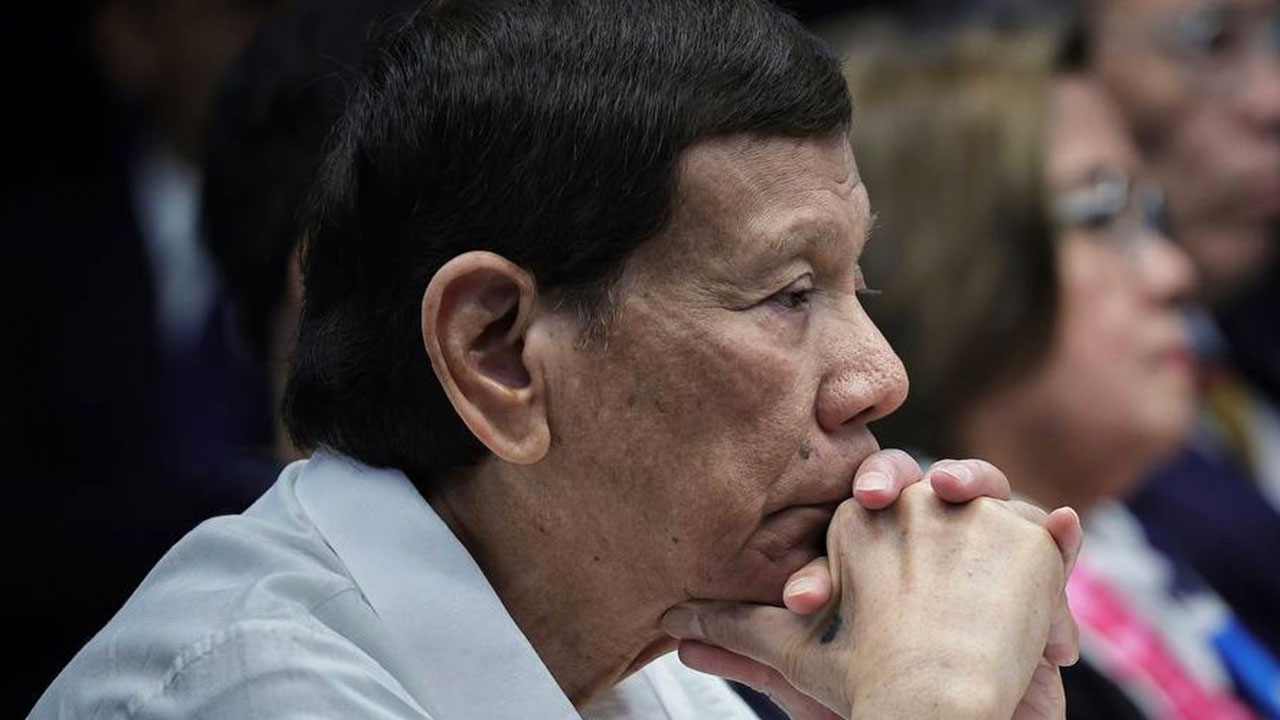
Upgrade to High-Speed Internet for only ₱1499/month!
Enjoy up to 100 Mbps fiber broadband, perfect for browsing, streaming, and gaming.
Visit Suniway.ph to learn
 FORMER PRESIDENT Rodrigo R. Duterte — OFFICIAL FACEBOOK ACCOUNT OF THE SENATE OF THE PHILIPPINES
FORMER PRESIDENT Rodrigo R. Duterte — OFFICIAL FACEBOOK ACCOUNT OF THE SENATE OF THE PHILIPPINESTHE PRESIDENTIAL palace on Thursday rejected Senator and presidential sister Maria Imelda “Imee” R. Marcos’ claim that soured ties between the Marcos and Duterte clans had led to the government’s willingness to carry out the International Criminal Court’s (ICC) arrest order against former President Rodrigo R. Duterte.
“The administration’s actions were solely based on the law and its obligations to the International Criminal Police Organization (Interpol),” Presidential Communications Office Undersecretary Clarissa A. Castro told a news briefing. “If Senator Marcos has a different perspective, that is her personal opinion.”
Mr. Duterte, who sat as president from 2016 to 2022, was arrested on March 11 in Manila, marking the biggest step yet in the ICC’s probe of his alleged crimes against humanity in connection with his anti-illegal drug crackdown that killed thousands and drew condemnation around the world.
The Hague-based tribunal has been investigating the firebrand leader for crimes he allegedly committed when he was Davao City mayor and during the first three years of his government, when the Philippines was still a party to the international tribunal.
Ms. Marcos, who remains a close friend of the Dutertes, on Wednesday withdrew from her brother’s senatorial slate, citing a deliberate effort to “obscure the truth” about the ex-President’s arrest.
Suspicions that she had been dropped from the slate arose after the President left her name out in his speech, only accounting for 11 senators in the administration’s senatorial ticket.
The senator earlier told a Senate hearing looking into the arrest high-ranking government officials and witnesses were deliberately hiding facts about the arrest by repeatedly invoking executive privilege.
At the same Senate hearing, Justice Secretary Jesus Crispin C. Remulla said the government did not plan Mr. Duterte’s arrest and surrender to The Hague-based tribunal.
Ms. Marcos said the Philippines had no obligation to arrest and surrender Mr. Duterte to the ICC. “There were glaring violations of the rights of the former President,” she told a news briefing.
Ms. Marcos added that the government had not only helped the ICC in the arrest had already planned his arrest before a warrant was issued.
The war on drugs was Mr. Duterte’s signature campaign platform that swept the mercurial, crime-busting former prosecutor to power in 2016, and he soon delivered on promises made during vitriolic speeches to kill thousands of drug dealers and users.
“Executive privilege is a constitutional doctrine that allows the president and high-ranking executive officials to withhold sensitive information, especially if it risks encroachment by one branch of government over another,” Ms. Castro said.
“This is not about hiding anything; it’s about ensuring that sensitive matters are handled appropriately.”
Mr. Marcos earlier said his government was just doing its job in carrying out the ICC arrest warrant and cooperating with Interpol, adding that it was nothing personal.
During Mr. Duterte’s six years in office, 6,200 suspects were killed during anti-drug operations, by the police’s count. Human rights groups say the deaths could be as many as 30,000.
“If she is investigating this matter, we hope she remains impartial and also considers the view of those who support the administration’s decision to surrender former President Duterte to the ICC,” Ms. Castro said.
“We are simply following what the law states and what our obligations and commitments to Interpol are. That is all we are doing — nothing personal,” she added. — John Victor D. Ordoñez




